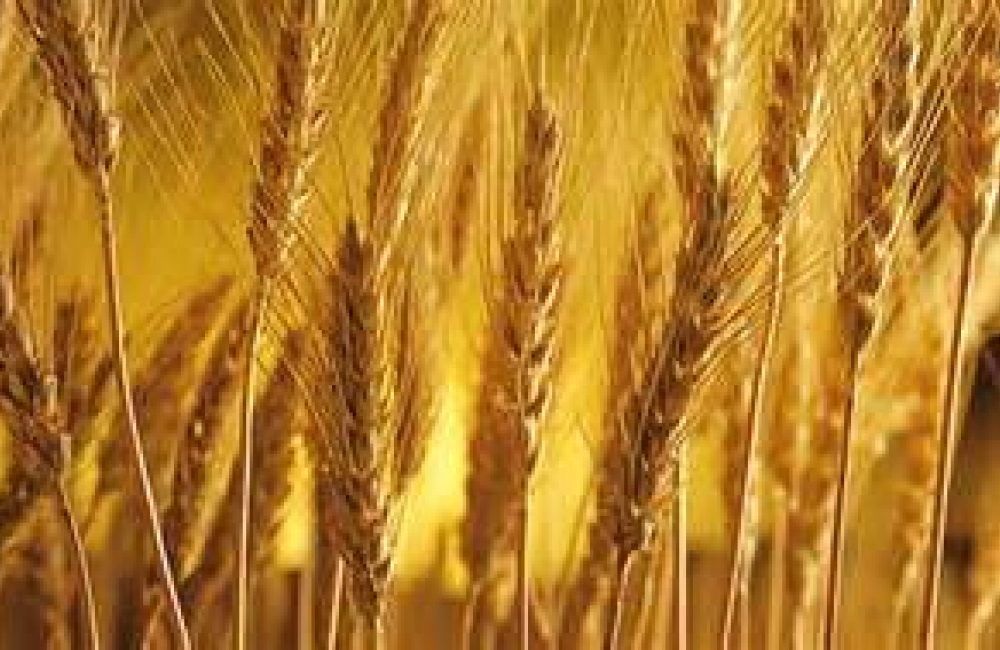
|
Getting your Trinity Audio player ready...
|
'And you shall count for yourselves from the day after the Sabbath, from the day that you brought the sheaf of the wave offering: seven Sabbaths shall be completed. 'Count fifty days to the day after the seventh Sabbath; then you shall offer a new grain offering to the LORD. 'You shall bring from your dwellings two wave loaves of two-tenths of an ephah. They shall be of fine flour; they shall be baked with leaven. They are the firstfruits to the LORD. Leviticus 23: 15 – 17
Beginning at sundown Saturday June 11 through Sunday, June 12, 2016 the Jewish holiday of Shavuot, also known as Pentecost, is celebrated. This holiday is known by several other names, including the Feast of Weeks and the Feast of the Harvest. The celebration became known as Pentecost, which means 50 in Greek because it is observed 50 days after the celebration of Passover.
Pentecost is a joyous time of giving thanks and presenting offerings for the new grain of the summer wheat harvest. The celebration of Pentecost is observed because God commanded the Jews in Leviticus 23 to count seven full weeks beginning on the first Sunday after the first Sabbath after the Passover Lamb was sacrificed, and then present offerings of new grain to the Lord. The Feast of Pentecost is one of the three pilgrimage feasts when all Jewish males were required to appear before the Lord in Jerusalem. (Deut. 16:16)
According to Jewish tradition, it is believed that Moses received the Law on Mount Sinai exactly 50 days after Passover, or on Pentecost, based on Exodus 19:1, so the receiving of the Law is also celebrated on this day. Today in Israel, the Feast of Shavuot is celebrated by reading the account of the giving of the Law in Exodus 19 and 20 and by reading the book of Ruth, a story of the celebration of the harvest and of God’s redemption and restoration.
In early New Testament times, Jesus told his disciples to wait in Jerusalem following his crucifixion, resurrection and ascension. They were all together in the upper room for Pentecost on the 50th day after the Sabbath of Passover week. The Holy Spirit filled the house, with a sound like a mighty wind and what appeared to be tongues of fire, and filled the disciples. (Acts 2) The apostle Peter referred to the prophet Joel who said that God would “pour out His Spirit on all flesh.” (Joel 2:28-32) The people responded to Peter’s message with repentance, and about 3,000 were baptized. Then those who gladly received his word were baptized; and that day about three thousand souls were added to them. (Acts 2:41) The new covenant between God and Israel (Jeremiah 31:31; Hebrews 9:14-15) was initiated on Pentecost, 50 days after the death of Jesus Christ.
When the Day of Pentecost had fully come, they were all with one accord in one place. And suddenly there came a sound from heaven, as of a rushing mighty wind, and it filled the whole house where they were sitting. Then there appeared to them divided tongues, as of fire, and one sat upon each of them. And they were all filled with the Holy Spirit and began to speak with other tongues, as the Spirit gave them utterance. Acts 2:1-4
Latest news

Inside The EPICENTER®: Is the Ceasefire Blowing Up? Joel & Lynn’s Update From Jerusalem #325

Inside The EPICENTER®: J.D. Greear and Joel Rosenberg on Revelation and the Church #326

Inside The EPICENTER®: Hamas Is Now Slaughtering Gazans — How Should Trump and Evangelicals Respond? #324
STAY INFORMED.
Sign up to receive prayer requests, newsletters and updates from The Joshua Fund.
Privacy Policy

Inside The EPICENTER®: Is the Ceasefire Blowing Up? Joel & Lynn’s Update From Jerusalem #325

Inside The EPICENTER®: J.D. Greear and Joel Rosenberg on Revelation and the Church #326

